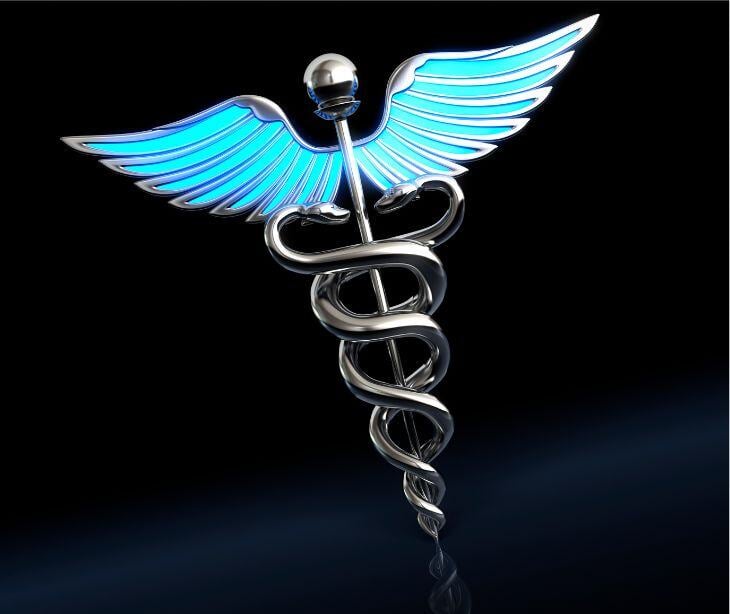3 min read
How professional associations shape healthcare and ethics
Gugu Ntsele Feb 11, 2025 7:29:54 AM

A study by BMJ Journals, Associations, unions and everything in between: contextualising the role of representative health worker organisations in policy stated that, "Associations, unions and other organised groups representing health workers play a significant role in the development, adoption and implementation of health policy. These [associations] are a key interface between employers, governments and their members (both actual and claimed), with varying degrees of influence and authority within and across countries."
The foundation of healthcare ethics guidance
Professional associations serve in establishing and maintaining ethical standards in healthcare through codes of ethics and professional resources. Organizations such as the American Medical Association (AMA), American Nurses Association (ANA), and World Medical Association (WMA) have developed ethical frameworks that form the backbone of healthcare ethics globally.
These associations influence healthcare ethics in multiple ways:
1. Code of ethics development and maintenance
Professional associations create and regularly update codes of ethics that serve as foundational documents for healthcare organizations. According to the NIH, Codes of Ethics: Principles of Ethical Leadership, these frameworks:
- Establish core principles and values
- Define professional responsibilities
- Address emerging ethical challenges
- Provide guidance for complex decision-making
For example, the AMA's Code of Medical Ethics, first published in 1847 and regularly updated, remains one of the most detailed ethical guides in healthcare. It covers topics from physician-patient relationships to ethical considerations in emerging medical practices.
2. Educational resources and training
In 2018, The WMAentered into a partnership with theWorld Continuing Education Alliance (WCEA) to create a massive resource of continuing education provided by the world's leading educators. Thousands of courses were uploaded to the WMA platform creating one central hub of knowledge for physicians to access and stay up to date with the latest thinking and advances from around the world.
"With an umbrella membership of more than ten million physicians, the WMA seeks to influence medical ethics, human rights and equal access to medical education around the world,"said Dr. Otmar Kloiber, WMA Secretary-General. "Online education provides a unique opportunity to connect the top educators with physicians improving knowledge and healthcare regardless of geographical location."
Associations support healthcare organizations by:
- Developing educational materials and programs
- Offering continuing education credits
- Providing workshops and seminars on ethical issues
- Creating case studies and decision-making frameworks
Practical implementation of ethical guidelines
The Codes of Ethics: Principles of Ethical Leadership further outlines that, "Professionals cannot wait for the law, policies and procedures, and other administrative systems to guide their actions because problems often arise and decisions must be made prior to the ability of these systems to offer guidance. For example, genetic discrimination and medical identity theft had to be dealt with far in advance of legislation or policies and procedures to guide actions. A code of ethics can provide immediate guidance on what should be done."
Healthcare organizations rely on association guidance to develop and implement ethical practices in several areas:
Clinical ethics
- Informed consent procedures
- Treatment refusal
- Genetic testing and counseling
- Organ donation and transplantation
- Research ethics and clinical trials
Organizational ethics
- Resource allocation
- Staff relations
- Marketing and advertising
- Financial management
- Community relations
Privacy and confidentiality
- Electronic health records management
- Data sharing and protection
- Social media usage
- Telemedicine practices
- Patient confidentiality in various settings
Addressing emerging challenges
"A profession develops in the context of the world, not in an isolated silo. A professional code of ethics is shaped by the context of the times, changes in the healthcare system, and the issues faced by the profession and the public at large." explains The Codes of Ethics: Principles of Ethical Leadership
The advancement of healthcare technology presents both opportunities and ethical challenges that professional associations must help organizations navigate. For example, Artificial Intelligence is changing diagnostics and treatment planning, while genetic modification and therapy raise questions about human enhancement and equity of access.
In 2019 the WMA released astatement on Augmented Intelligence In Medical Care, in which it urged its member organizations that doctors should be directly involved in creating and overseeing AI healthcare systems to ensure they are safe and effective, and that these systems must be transparent and trustworthy while preserving the essential relationship between doctors and their patients.
Global health challenges have become complex, requiring professional associations to provide guidance on unprecedented scenarios. TheCOVID-19 pandemic highlighted the critical need for ethical frameworks in resource allocation during crises, healthcare systems still have barriers that make it harder for some people to get good care. These factors strongly affect people's health and need to be addressed.
Professional associations play a crucial role in developing guidelines that balance innovation and access with patient safety and ethical considerations in these global contexts.
FAQs
How do professional associations enforce ethical standards?
Professional associations enforce ethical standards through codes of ethics, training programs, and disciplinary actions for violations.
Can healthcare organizations operate without following association guidelines?
While healthcare organizations are not legally required to follow professional association guidelines, adherence ensures ethical compliance, credibility, and alignment with best practices in patient care and decision-making.
How do professional associations address new ethical challenges in healthcare?
They continuously update ethical guidelines, conduct research, and collaborate with policymakers to address emerging issues.




%20-%202024-11-04T200835.076.jpg)